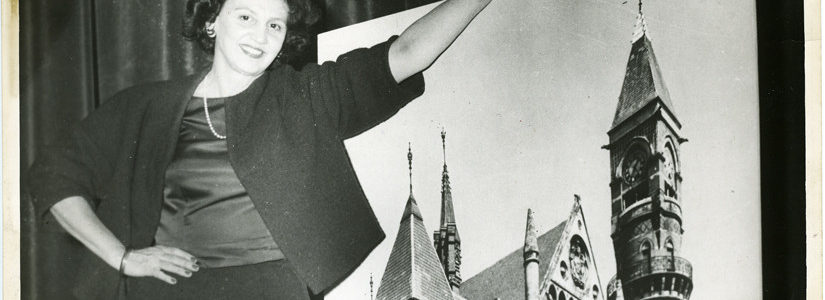
Living Legacies
May 14, 2009 | Anthony C. Wood, Founder & Chair
Article from the Spring 2009 Newsletter
In the early 1980s I did a series of oral histories with some of the great sages of preservation in New York City: Geoffrey Platt, Harmon Goldstone, Brendan Gill, and Ruth Wittenberg. Also on that list was Margot Gayle. All these giants of preservation responded warmly to the request of a preservation neophyte to conduct an oral history with them. All generously shared their stories, time and wealth of knowledge. I will never forget the time I spent with those living legends.
Once Margot became aware of my archival interest, for over the next twenty years she would continue to feed it with additional information and materials. Every so often I would get an envelope with a historic treasure enclosed. It might be a sheet of historic letterhead or a flyer from one of her old preservation efforts or an article on a past preservation battle.
As much as Margot appreciated the past, she was never lost in it. As we all know, she remained an active preservation advocate to the very end. I think it was at least partially because she appreciated how preservation history could help refine and support preservation advocacy, that she was willing to devote time and energy to helping me capture that history. Indeed, Margot’s own evolution as a preservationist both inspires and instructs. Her organizing strategies, political tactics, and creative approaches to advance preservation have much to offer those advancing preservation’s agenda today.
Because we are lucky and most of Margot’s preservation story has been documented, we can benefit from it.
Unfortunately, Margot is only one of a handful of preservationists whose stories have been captured. Since the interviews I conducted in the early 1980s, additional ones have been conducted by a variety of individuals and organizations. As important as each such effort is, for the most part they have been very limited, highly opportunistic and episodic. The cost of the absence of an organized and disciplined professional effort to gather preservation oral histories grows with each new obituary.
It would be hard to imagine a more difficult economic time to launch a major, proactive and well planned, preservation oral history initiative. Unfortunately we have no choice. Though such an effort will be costly, even when done creatively and economically, the price of waiting will only be greater. In reality, holding off for better economic times is not an option.
The Archive Project needs your support to help us take on this challenge. If you are a foundation with preservation interests, this is a high leverage project where your funds will make an extraordinary contribution. If you are a major individual donor, know that by funding this project you will make a permanent contribution to the field—the oral histories we capture will live on as part of the historic record. If you are like me, one who can write only a modest check, know that your gift of any size will make it possible for us to incrementally start this ambitious initiative and in so doing, improve the odds of capturing